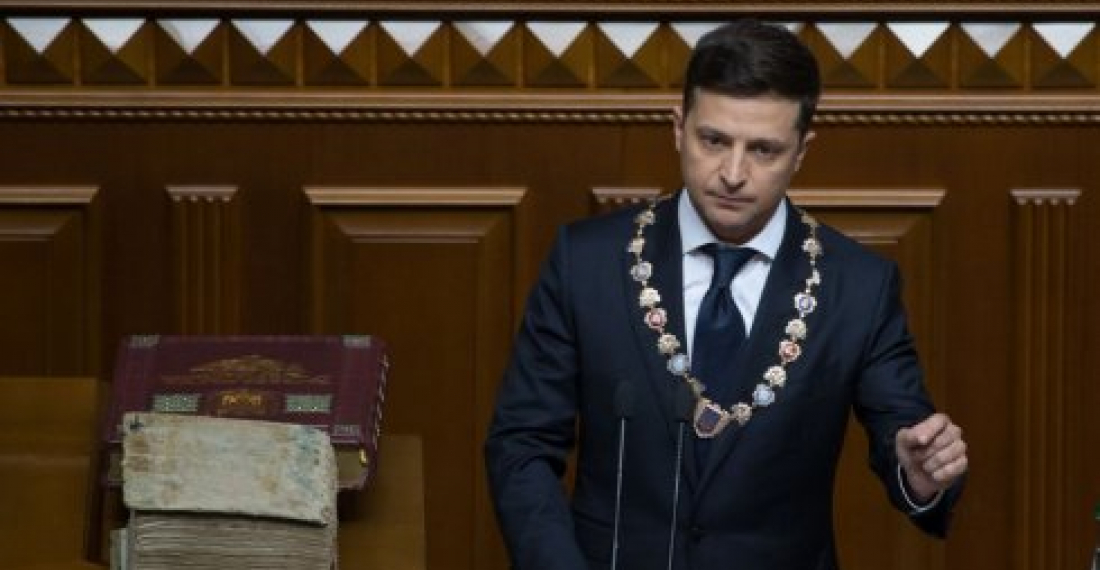Volodymyr Zelensky was sworn in as the sixth President of Ukraine earlier today (20 May), using his inauguration speech to announce a parliamentary snap election. One month after his landslide victory in the presidential election, Ukrainian’s new leader looks keen to capitalise on his current popularity to secure his ‘Servant of the People’ party a parliamentary majority.
The decision brings forward elections that were meant to take place in October later this year, with Zelensky emphasising the need for leaders that would serve the public, referring to some Ukrainian lawmakers as “petty crooks”.
Zelensky spoke of his ambition to unite the country, saying that Ukrainians must “become Swiss in our ability to live happily with each other, despite any differences”. He highlighted a ceasefire in the Russian-backed-separatist-controlled region of Donbass as the first task of his leadership, and switched from Ukrainian to Russian to say, “I'm convinced that for this dialogue to start, we must see the return of all Ukrainian prisoners”. Russian President Vladimir Putin, who earlier this year clashed with Zelensky by offering Russian passports to eastern-Ukrainian citizens, stated that he will not congratulate the new president on his inauguration until his “first successes” in the resolution of the separatist conflicts. He referred to the conflicts in eastern Ukraine as a “domestic problem”.
Beating former president Poroshenko by 73% in April, Zelensky is the youngest post-Soviet Ukrainian president. He was formally educated as a lawyer before becoming an actor-comedian and starting the tv-production company, Kvartal 95. In today’s speech, he emphasised that he had dedicated his life to making Ukrainians smile, and promised that, “In the next five years I'll do all I can so that Ukrainians don't cry”.
Sources: commonspace.eu, BBC News, AFP, and agencies
Photo: President of Ukraine website.






